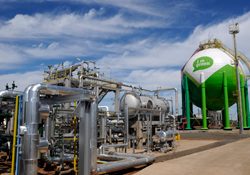
Although biobased polyethylene (PE) and conventional PE are chemically identical and thus the recyclability should be considered indubitable, the currently only producer of the material, the Brazilian company Braskem, repeatedly received questions about the impact of biobased PE on conventional recyclates.
In Braskem’s case, bio-PE means biobased PE, ie. durable, mechanically recyclable, identical chemical structure as conventional PE. The ‘bio’ prefix has probably been misinterpreted by some stakeholders to mean biodegradable. This, however, is not the case. All that Braskem are saying is that their PE is based on bagasse (a by-product of sugarcane production).
To help clear the confusion, Braskem teamed up with the Food and Biobased Research team of the University of Wageningen (Netherlands) and in December 2014 released the study „Recycling of bio-PE. Influence of bio-PE shopping bags on the quality of recycled film from SITA“.
The scientists of Wageningen UR added not previously used bio-PE to a representative bale of sorted film product obtained from recycling management company SITA. The properties of the recyclate improved – as was to be expected. These experiments confirmed that the adding of bio-PE to post-consumer sorted film does not lower the quality of the film recyclate.
The quality of both film and PE recyclates is mainly determined by the quality of the sorting process, which influences the polymeric purity of the recyclate mixture.
The study is available for download on the European Bioplastics website:
http://en.european-bioplastics.org/wp-content/uploads/2015/publications/BioPEbraskem.pdf
Source
European Bioplastics Bulletin 1/2015, 2015-02.
Supplier
Braskem
SITA Deutschland
Wageningen University
Share
Renewable Carbon News – Daily Newsletter
Subscribe to our daily email newsletter – the world's leading newsletter on renewable materials and chemicals










